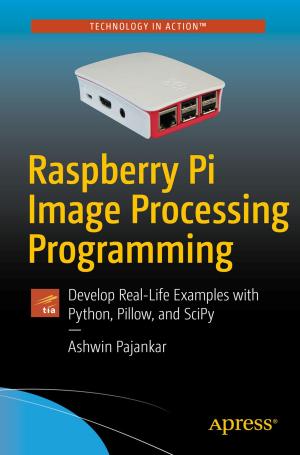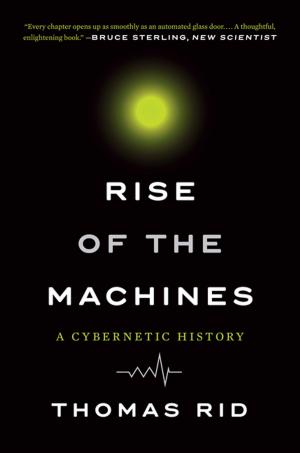Microsoft Word VBA Codes Are Easy to Learn Under an Hour for Some People
Nonfiction, Computers, Programming, Programming Languages, Visual BASIC, Advanced Computing| Author: | Kenny L Keys | ISBN: | 1230000165997 |
| Publisher: | Kenny L Keys | Publication: | August 30, 2013 |
| Imprint: | Language: | English |
| Author: | Kenny L Keys |
| ISBN: | 1230000165997 |
| Publisher: | Kenny L Keys |
| Publication: | August 30, 2013 |
| Imprint: | |
| Language: | English |
You can quickly learn what a comment, an array, a variable, a text string, a VBA loop Statement, a With Statement, a Set Statement, a Dim Statement and the basic functions of Microsoft Word 2010 VBA from the pages of this small book, but you must first have the desire to learn VBA; without the desire, you’ll only end up being disappointed in this book or any other book. When a person lacks an interest or a desire in a particular topic or matter, he or she just finds excuses to convince himself or herself that it’s someone else’s fault that he or she isn’t grasping a topic or doing well with subject matter. Let me immediately put your minds at ease. I don’t ascribe to societal stereotypes, i.e., I don’t believe that some groups or some individuals are smarter than others. My entire life has been spent teaching myself computer program languages, and I’ve never learned any of them from a college, a university or a tutor. I mostly used the help menus and built-in libraries that usually come with program languages. Just because I’m self-taught doesn’t make me smart—it simply means that I have always been drawn to computer program languages; I’ve always taken a strong interest in learning as many program languages as I could. It’s because my desire is intense and strong, when it comes to program languages, that I do well with them, but I’ve never been interested in learning in an environment that is structured or controlled by someone else, because I like to allow my own mind to be in complete control of my learning experiences. This could also be why some people who have tried computer languages in the past have given up on them. Some people just like to work at their own pace, and I like a very fast pace, when it comes to learning. I bore too easily to spend more than an hour learning any type of subject matter, even VBA, so I always keep that in mind when I design a tutorial-type book for others.
Everyone is different. There are plenty of people who hate program languages, but they learn them, because they realize that these languages can reduce the time spent on every day, boring, repetitive task that usually take up most of a person’s day, when the tasks are completed manually. If you don’t have an interest in mastering Microsoft VBA in Microsoft Word, that’s alright. You don’t have to know the language inside out, in order to make it serve you well and reduce your daily workload. How can VBA benefit you, if you’re not a programmer? That’s the mistake that so many people make. VBA would be a more effective tool in the hands of people like Administrative Assistants, Project Managers, Clerks and even Customer Service Reps. These individuals are tasked with working with far more data than any programmer has ever been tasked with; regularly, these groups spend hours, days and weeks on repetitive tasks that many of them hate. With VBA, an individual can reduce a manual task that takes him or her about 8 hours to complete manually down to a task that takes less than a second to complete. Projects and tasks that take weeks or months can also be reduced down to tasks that only take a few minutes to complete. It’s understandable why so few of the people who should be using VBA and other program languages don’t use them. Society has taught many people that only smart people are programmers. Another reason that many people who should be using VBA to reduce their workloads aren’t using it is because companies like to promote titles, i.e., programmers are important people—not the Clerks, Administrative Assistants and Customer Service Reps., but there’s no employer that will complain when one of their entry-level associates uses VBA to bring efficiency into the department, the unit or the company. That’s what I try to do with this book and my other two books in this series. I try to avoid using computer language (i.e., terminology) in my books, because it’s really not necessary. Using language that the majority of people in this world don’t understand has nothing to do with tutoring or teaching others. Personally, if I can’t understand what a person is talking about, I won’t waste my time sitting and listening or reading anymore of what he or she has to say, so I keep this in mind when I’m attempting to make learning VBA fast, fun and easy for everyone. So, if you’re willing to believe that you are as capable of learning what anyone else can learn, without paying tens of thousands of dollars to do so and without having to read a book or manual that will take you weeks or months to complete, this book just may be for you. However, before you make your final decision, you will need to check out some of my free extended previews of my books via the links in my online profile. Don’t give a critic the power to control what’s right or wrong for you, because no two people are the same. Just because a critic doesn’t like something, it doesn’t mean that you won’t like those things. Remember that VBA is a language that requires lots of logic and reasoning—it’s not about being emotional and/or unreasonable. I don’t believe that I’m smarter than many other regular, everyday people who regularly doubt their own abilities to master and use VBA. The only difference between me and a non-programmer is that I have an interest in VBA and many of them don’t. A lack of interest or desire has absolutely nothing to do with intellect, so if you lack an interest in VBA at this time, that’s alright. I encourage you to keep an open mind, because one day you just might find the time to try it, and you may be great at it.
This book doesn’t contain an index, a study guide, a glossary or a reference page.
You can quickly learn what a comment, an array, a variable, a text string, a VBA loop Statement, a With Statement, a Set Statement, a Dim Statement and the basic functions of Microsoft Word 2010 VBA from the pages of this small book, but you must first have the desire to learn VBA; without the desire, you’ll only end up being disappointed in this book or any other book. When a person lacks an interest or a desire in a particular topic or matter, he or she just finds excuses to convince himself or herself that it’s someone else’s fault that he or she isn’t grasping a topic or doing well with subject matter. Let me immediately put your minds at ease. I don’t ascribe to societal stereotypes, i.e., I don’t believe that some groups or some individuals are smarter than others. My entire life has been spent teaching myself computer program languages, and I’ve never learned any of them from a college, a university or a tutor. I mostly used the help menus and built-in libraries that usually come with program languages. Just because I’m self-taught doesn’t make me smart—it simply means that I have always been drawn to computer program languages; I’ve always taken a strong interest in learning as many program languages as I could. It’s because my desire is intense and strong, when it comes to program languages, that I do well with them, but I’ve never been interested in learning in an environment that is structured or controlled by someone else, because I like to allow my own mind to be in complete control of my learning experiences. This could also be why some people who have tried computer languages in the past have given up on them. Some people just like to work at their own pace, and I like a very fast pace, when it comes to learning. I bore too easily to spend more than an hour learning any type of subject matter, even VBA, so I always keep that in mind when I design a tutorial-type book for others.
Everyone is different. There are plenty of people who hate program languages, but they learn them, because they realize that these languages can reduce the time spent on every day, boring, repetitive task that usually take up most of a person’s day, when the tasks are completed manually. If you don’t have an interest in mastering Microsoft VBA in Microsoft Word, that’s alright. You don’t have to know the language inside out, in order to make it serve you well and reduce your daily workload. How can VBA benefit you, if you’re not a programmer? That’s the mistake that so many people make. VBA would be a more effective tool in the hands of people like Administrative Assistants, Project Managers, Clerks and even Customer Service Reps. These individuals are tasked with working with far more data than any programmer has ever been tasked with; regularly, these groups spend hours, days and weeks on repetitive tasks that many of them hate. With VBA, an individual can reduce a manual task that takes him or her about 8 hours to complete manually down to a task that takes less than a second to complete. Projects and tasks that take weeks or months can also be reduced down to tasks that only take a few minutes to complete. It’s understandable why so few of the people who should be using VBA and other program languages don’t use them. Society has taught many people that only smart people are programmers. Another reason that many people who should be using VBA to reduce their workloads aren’t using it is because companies like to promote titles, i.e., programmers are important people—not the Clerks, Administrative Assistants and Customer Service Reps., but there’s no employer that will complain when one of their entry-level associates uses VBA to bring efficiency into the department, the unit or the company. That’s what I try to do with this book and my other two books in this series. I try to avoid using computer language (i.e., terminology) in my books, because it’s really not necessary. Using language that the majority of people in this world don’t understand has nothing to do with tutoring or teaching others. Personally, if I can’t understand what a person is talking about, I won’t waste my time sitting and listening or reading anymore of what he or she has to say, so I keep this in mind when I’m attempting to make learning VBA fast, fun and easy for everyone. So, if you’re willing to believe that you are as capable of learning what anyone else can learn, without paying tens of thousands of dollars to do so and without having to read a book or manual that will take you weeks or months to complete, this book just may be for you. However, before you make your final decision, you will need to check out some of my free extended previews of my books via the links in my online profile. Don’t give a critic the power to control what’s right or wrong for you, because no two people are the same. Just because a critic doesn’t like something, it doesn’t mean that you won’t like those things. Remember that VBA is a language that requires lots of logic and reasoning—it’s not about being emotional and/or unreasonable. I don’t believe that I’m smarter than many other regular, everyday people who regularly doubt their own abilities to master and use VBA. The only difference between me and a non-programmer is that I have an interest in VBA and many of them don’t. A lack of interest or desire has absolutely nothing to do with intellect, so if you lack an interest in VBA at this time, that’s alright. I encourage you to keep an open mind, because one day you just might find the time to try it, and you may be great at it.
This book doesn’t contain an index, a study guide, a glossary or a reference page.















